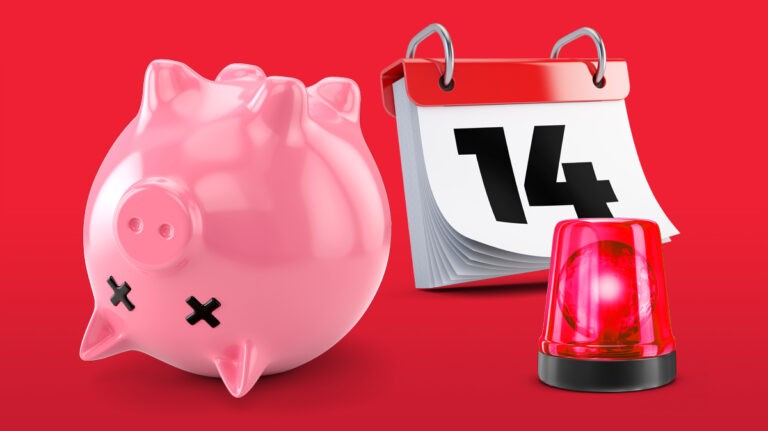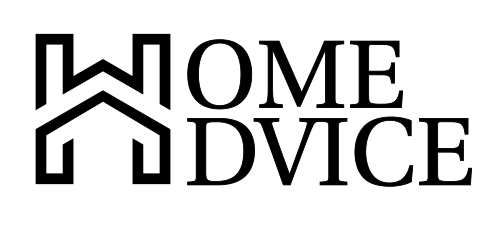Should I Consider Bankruptcy

Should I Consider Bankruptcy or a Consumer Proposal? The Alarming Truth
You’ve seen the billboards and heard the radio ads. They’re everywhere these days. Generally the premise is to help you get out of debt—quick and easy.
And they ought to trigger your spidey senses with thoughts like:
- Hey, ads like these cost a lot of money!
- Where is all that money coming from?
- Aren’t the “customers” already broke?
- Why does the advertiser want my case badly enough to spend PILES of money luring me in?
These are all reasonable questions. And it’s worth thinking about each of them before filing for bankruptcy or proceeding with a consumer proposal—because you have other options.
Let’s break it down.
So who is behind all these ads?
When you see or hear an ad offering to help you walk away from debt, it is likely paid for by a licensed bankruptcy or insolvency trustee, many of which nowadays are a lucrative division of a big accounting firm.
These folks derive their fees directly from you, after obliterating your credit for many years in the process.
Typically for a bankruptcy in Canada, you’ll pay the trustee 100% of the first $975 of your debt, plus 35% of the money you owe between $975 and $2,000—and then 50% of all money you owe exceeding $2,000!
These are HUGE percentages that easily add up to fees in the thousands, and newly bankrupt you has to pay them. (Zero chance of walking away from these guys scott-free!)
Long and short of it is, trustees make very good money and always get paid. But the people who provide you with products and services in good faith get burned, and YOU pay too, regardless of the attractive, seemingly benevolent claims.
In reality, everyone but the trustee will end up suffering in some way, so it’s easy to see why those ads and billboards could even be considered predatory. They are literally taking new money from folks in desperate financial despair (i.e. YOU), and leaving them with no access to credit for years to come. It’s also terrible for the economy, because stopping receivables from being paid creates a domino effect of defaults and forces prices up for all paying customers.
But enough about everyone else. Let’s talk about you again.
What are the impacts on ME?
It’s really important to ask this question, because the long-term repercussions of a bankruptcy or consumer proposal can be huge for the person who’s gone through the process.
Imagine having to explain to a future partner that you can’t buy a house.
Picture yourself discovering—after acing an interview for your dream job—that the credit check instantly disqualified you.
Think about year after year of being unable to get a credit card to use for emergencies like a broken-down car or dentist’s bill.
Those are real, life-limiting and irreversible impacts that are embarrassing and can be harmful to your self-esteem.
And even after the years go by, rebuilding will be much harder than you may think. It could leave you in a much worse situation than what you’re facing today.
What are the consequences of declaring bankruptcy in Canada?
Regardless of what the ads imply, a bankruptcy is never fast, easy—or even a fresh start. Your credit report will reveal that you declared bankruptcy for six years after your discharge from a first bankruptcy (normally 9 to 21 months after you file).
And if it’s a second bankruptcy, it will stay on your credit file for 14 years!
It is also important to know that alimony, mortgages, car loans and other secured debts do NOT go away when you declare bankruptcy—you still have to pay these things in full.
You will need to report your income to the trustee monthly, and if you begin to earn more money, you can be forced to pay more on that “surplus income.”
These requirements can make you feel less motivated, since working harder doesn’t seem to move you forward.
In a bankruptcy situation you can also expect to lose any equity in your home, tax refunds owed to you, and RRSP contributions made in the past year.
Rebuilding creditworthiness after declaring bankruptcy is far from the clean-slate scenario many people are led to expect.
You’ll have no credit history to build on, which is hard to explain to prospective lenders. In reality, even when the bankruptcy is finally removed from your credit file years down the road, banks, mortgage companies, auto finance departments and other lenders will immediately read between the lines when they see a suspiciously empty credit report on a mature adult.
And they DO discriminate, because the odds of losing money on you are grievously high! (People in these positions are called “risk managers” for a reason.)
What are the consequences of a consumer proposal in Canada?
A consumer proposal drags on even longer than a bankruptcy, because you’ll usually be required to extend payments over years. And when you make a consumer proposal, the good old trustee sometimes makes even more money than with a bankruptcy in a similar debt situation.
In Canada you’ll typically be required to pay the trustee the first $1,500—PLUS 20% of every dollar you agree (through the trustee’s negotiations) to pay to your creditors.
Hard to imagine how this incentivizes the trustee to minimize those payouts, because in doing so THEY also receive less money from you.
And you need to know a consumer proposal has a direct negative impact on your credit rating that hangs over your head for 3 years after the already distant day when you’ve paid everything off. (Lenders don’t love taking a chance on folks who have a track record of losing previous lenders money.)
Your consumer proposal would be a new and binding commitment, where falling behind on even one payment is a material breach that can nullify the entire agreement—leaving you back owing the balance of the initial amount once again!
As you’ve seen, especially with smaller debt burden, a consumer proposal can cost even more than a bankruptcy in terms of what YOU end up paying the trustee.
***Rant Alert*** And then there’s the moral side. With a bankruptcy or consumer proposal, you’re violating the most basic rule of transactional trust and a principle your parents likely taught you long ago. Buying goods or services is an agreement wherein you promise to make a fair trade. The other party gives you something, where your end of the deal is clearly to pay for it in full.
Walking away from that commitment simply because you’ve made other bad choices leaves a trail of wreckage for others to resolve on your behalf. Imagine from the other party’s end how infuriating it would be!
So paying a random trustee to help you skip out on a multitude of prior trust-based commitments for things you’ve enjoyed probably won’t leave you feeling great in the end.
Still, maybe you are somehow okay with all that. You’re the one (or more accurately one of the ones) who has to live with your decisions—as well as the severe long-term consequences for your future. And you’ll be the one who pays the trustee’s bill (helping fund all those advertising campaigns), so you at least deserve to see the whole picture, and then do as you choose. ***End of Rant***
Ok, I get it! If I don’t want to pay one of those trustee characters, what can I do?
The first thing you need is a workable plan to take control and become debt-free. In most cases that involves paying off high-interest debt like credit cards first, and clearing overdue accounts that stand in the way of getting access to services you need like a phone, data plan and housing.
Debt consolidation is often a smart option, and can be especially easy if you own a home. Combining all your debts allows you to make good on your financial commitments, and pay off high-interest accounts with a smaller, single recurring payment at greatly reduced interest.
It’s not unusual to save thousands while quickly paying off debt that would go on forever if you continued making minimum monthly payments. For debt consolidation, see our list of independent third-party alternative lenders and mortgage providers if your bank is unable or unwilling to help.
You don’t need to pay a trustee to consolidate debt. (MetCredit is NOT affiliated with and receives no compensation from these folks, by the way.)
A MetCredit agent can help with plans like these if you have an account in collections with us. It’s one of the most important and meaningful things we do, and we charge you nothing for it. Contact us for more information.THE BUSINESS RECOVERY GUIDESTRATEGIES TO REBUILD STRONGERfor Business Leaders in Unprecedented Times Download Free
Author: Brian Summerfelt
President and CEO of MetCredit,
Canada’s top-performing consumer and commercial collection agency
![]()








